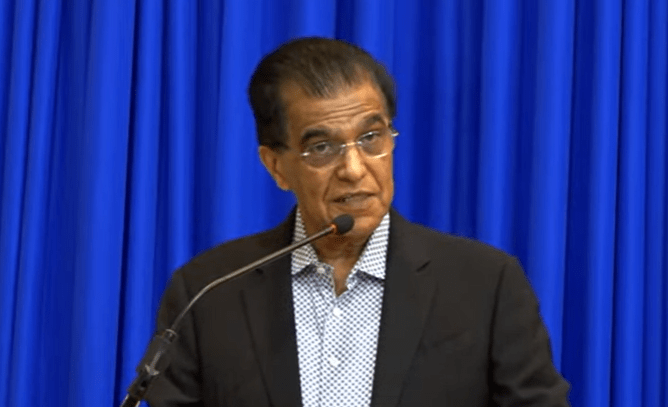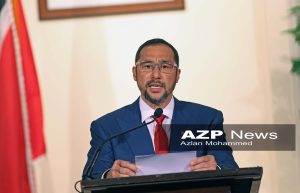By Prior Beharry
THE public must decide in a referendum vote if after 189 years the Judicial Committee of the Privy Council is to be removed as the final appellate court of Trinidad and Tobago.
This is the view of former attorney general Ramesh Lawrence Maharaj speaking on Saturday at the inaugural lecture of the Sanatan Dharma Maha Sabha (SDMS) on whether the Caribbean Court of Justice (CCJ) should replace the Privy Council as T&T final appellate court. It took place at the Lakshmi Girls’ College in St Augustine.
He said there were eight referendums in the countries of the English-speaking Caribbean to replace the Privy Council with the CCJ and only was in favour.
Maharaj said although a referendum was not part of the law in T&T, all that was needed was a simple majority in the Parliament to have one.
He said when T&T became a Republic in 1976, the Queen was no longer the Head of State and the sovereignty of the nation then resided with the people.
“The people have all the power in T&T. They could move a government could replace a government, they could virtually do anything lawfully in T&T.
“So that is why I say that if for 189 years you have a judicial institution giving you the appellate jurisdiction and yes you recognise that sometimes in the future you will have to get rid of it because of many reasons…”
He said the people have a constitutional right which is entrenched in the Constitution that cannot be taken away except by a special majority in both Houses of Parliament.
Maharaj said in the Lower House a three-fourths majority was required which means that 31 out of the 41 seats were needed to support the removal. He noted that the People’s National Movement (PNM) Government would require a further nine votes given its current majority.
In the Senate, he said 21 votes or a two-thirds majority was required and thus the Government needed the support of at least six non-government senators.
He said, “If you are a government committed to democracy and you want to remove that right and the people of T&T sovereign democratic state, then it only follows that you have a duty as a government to consult the people, get the consent of the people and you pass a law to permit a referendum and permit a vote for that purpose.”
Therefore, he said, if any government decides that it wants to remove the Privy Council without a referendum, “it may be that public interest ligation can be laid against that government as a breach of public law principle of it being irrational, of it being not fair and being unlawful.”
Maharaj listed the eight instances where a referendum was held to have the CCJ replace the Privy Council as the final appellate court. They included:
- The Bahamas in 2002 and 2016;
- Antigua in 2008;
- Nevis in 1998;
- Grenada in 2009 and 2016; and
- St Vincent and the Grenadines in 2009.
The successful vote to have the Privy Council removed was in 1978 in Guyana under then president Forbes Burnham. He said there were newspaper reports that Burnham did not adhere to democratic principles and the vote was fixed and even flew his political party’s flag over the Courts of Guyana.
Maharaj said even when T&T became a Republic in 1976, the then prime minister Dr Eric Williams refused to have the Privy Council replaced with one of the reasons being that in a small country like T&T “everybody know everybody.”
He said Dr Williams had said that when you went to a cocktail party everybody was there including judges and politicians.
Maharaj said Dr Williams went against his party’s wishes and did not replace the Privy Council with a Caribbean or federal court although he had a special majority in the Parliament following a no-vote campaign in the previous general election.
Also speaking at the symposium were Anand Beharrylal, QC, from London, former PNM government minister Karen Nunez-Teshiera and attorney Kiel Takalalsingh.
![]()















Curtis Seepersad
June 25, 2022Before a Referendum reaches the people we would rely on Parliament to give us the advantages and disadvantages, our Parliament is cojoined with and Executive that is run by one man point of view the PM
We might need Constitutional change first.